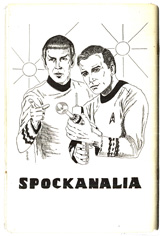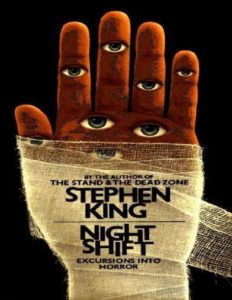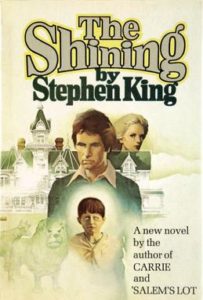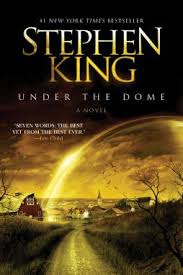Another month brings me another really interesting subject to blog about: adaptations. There were certainly a lot of directions I could have gone with this, lots of movie and television options to consider for example. I’ve been a big fan of adaptations over the years: books that became movies, television series that became books, expanded universes and spun off realities. Despite this, I knew pretty quickly what kind of adaptation I wanted to cover- -a type that requires no contracts, no licensing and is usually done just for the pure enjoyment of it: fan fiction.
Wait, come back.
Look, I’m aware that fan fiction has something of a reputation and it is true that many examples of fan fiction can contain writing elements and prose that are… let’s call them underdeveloped. This is not true of all fan fiction of course, there’s some marvelous stuff out there. Addressing the ones that are a bit rougher to read though, I’m here to submit that this very rough nature may be as much a feature as a bug.
I’m not going to discuss the definition or the history of fan fiction, not when you can read all of that here <link>. Rather I’d like to discuss my own view of the concept, and why I think it is both an excellent writing tool as well as one of the purest forms of creation out there.
I think many of us started with some version of fan fiction. This was certainly true for me – The first stories I ever created were fan fiction. Before I could even write, I was dictating stories to my mother of G.I. Joe’s adventures in the jungle, hoping she’d send them to Hasbro where they’d be made into new toys. (Back in those days Joe had ditched the Army and become more of a Indiana Jones type complete with kung-fu grip!) Later I would draw my own Star Wars and Star Blazers comics as well as write my own Battlestar Galactica short stories.
Many years as an adult later the writing itch began to come back to me. I had a novel I had been carrying around in my head for a long time, but I still didn’t feel ready to attack that yet. I needed a warm up, something to get the writing muscles in shape. I decided to join an online fan fiction writing group, writing shared stories within the Star Trek universe. I wrote with this group for a few years, creating several characters and learning a great deal about duilding tension, working with character dynamics and crafting satisfying endings. It was a great experience and really prepared me for the full blown fiction writing that lay ahead for me.
Looking back on that now, I see the value fan fiction had for me as a fledgeling creative writer. When you write an original piece of fiction, the sheer amount of creation you need to do is very daunting, especially in the speculative realms. Not only does the plot need to be worked out, but you must create the characters, locations, backstories, technologies, and so on. It can be overwhelming.
With fan fiction, much of that work is done for you. It is a sandbox where everything you need to play is already set up for you. You still need to create the adventure, but the rest is already done. This allows the new writer to just focus on the story creation, let’s say by creating a new adventure for Captain Picard and the crew of the Enterprise. Later, the writer could expand things by adding a new character of their own creation, or sending the ship to a new planet they’d have to invent. In this case, they are taking on world building and character design in nice bite size pieces, learning to crawl before walking. Fan fiction allows a new writer to step into the world of story creation slowly, working at their own pace and adding skills one at a time. There is a freedom there that I think had a great deal of value.
Additionally, I admire fan fiction for the pure honesty it represents. These are writers who will never be paid and will never see their work in print. They write instead to see their favorite universes in a more personal light; allowing for a broader range of stories, representation and scenarios that often are simply not available in the ‘canon’ universes. Viewed in this light, fan fiction might be the the truest adaptation form of all, one done for the sheer love of the source material. These writers are writing for the pure joy of creation, and I find that compelling.
It is easy to look down on fan fiction as something ‘lesser’ than paid fiction, but I feel doing so overlooks a very special and unique category of adaptation, one that had a great deal to offer both reader and writer.
See you next time!






